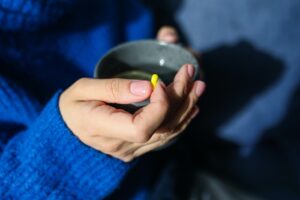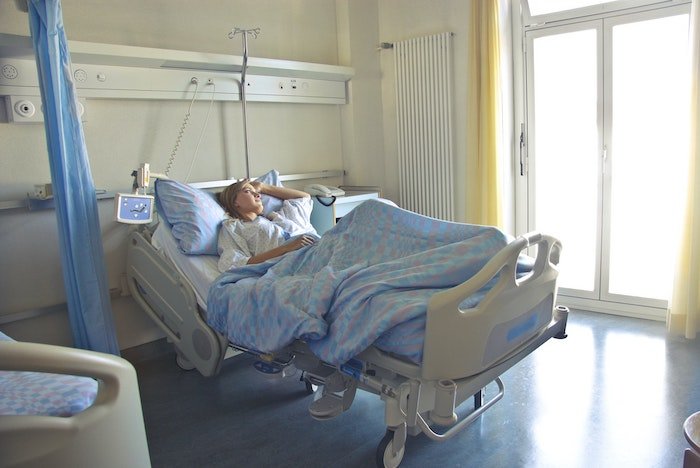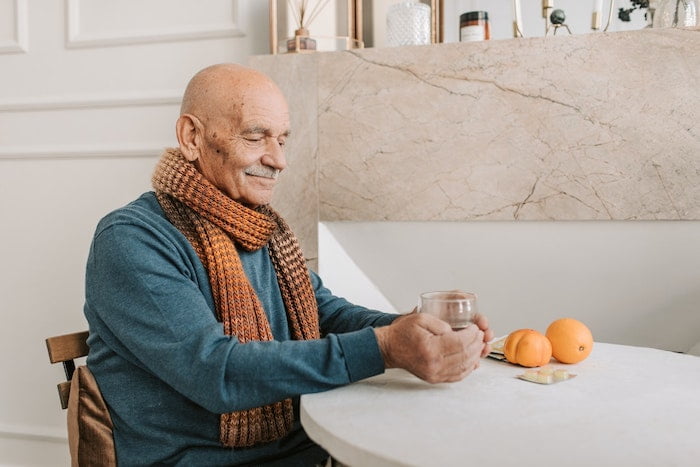Drug and Alcohol Rehab Wakefield
This article will discuss drug and alcohol rehab in Wakefield.
Wakefield is a town located in West Yorkshire, England. It has an estimated population of 99,251.
According to the latest data, England continues to see a rise in alcohol and substance dependency.
It is estimated that 2.1% of adults (16 to 59) and 4.3% of adults (16 to 24) are classified as frequent drug users.
Cannabis is the most used drug, followed by cocaine and then heroin.
In Wakefield, there is a recorded 3,016 adults deemed opiate and crack users (OCUs) and 4,230 adults deemed alcohol dependent. (1)
For more information about drug and alcohol statistics in England and Wakefield, please follow this link.
In Wakefield, that are, fortunately, many drug and alcohol services that provide a range of treatment options.
This article will discuss drug and alcohol treatment in Wakefield, how to access it, and what people can expect from treatment
Please call our 24-Hour Helpline: 0800 326 5559
Reaching out to get help

Reaching out to look for drug and alcohol rehab in Wakefield, or anywhere else, can be incredibly tough. This is especially true when you’re not sure what you’re looking for.
If you feel that you have any level of problem with drugs, alcohol, or any kind of addictive behaviour such as gambling, don’t hesitate to call OK Rehab on 0800 326 5559.
We can give you advice on what to do and where to go next, as well as emotional support. We can even give you guidance if you’re not the person suffering from the addiction.
In fact, as well as our helpline, we also offer an intervention programme.
Please call our 24-Hour Helpline: 0800 326 5559
A brighter future

When you’re stuck in the toxic cycle of addiction, you may feel like you’ll never escape. But there is a way out. Addiction is deep and complicated – it often has roots in trauma and mental health issues, in addition to the physical toll it takes on the sufferer.
But, with the help of people who are experienced in dealing with these kinds of problems and with the right kind of treatment, it is manageable.
That being said, early treatment can really help to make the recovery process easier. It’s like a lot of other disorders in that way: the quicker you can get to it, the less it will have spread in a majority of cases.
If you’ve been using, drinking excessively or have been suffering from any other kind of addiction for a long time, it may also be harder to break down the patterns of behaviour driving it.
That’s where cognitive behavioural therapy comes in, which leads nicely into our next subject…
Please call our 24-Hour Helpline: 0800 326 5559
Pre-rehab Steps: Intervention

Having a loved one that suffers from addiction can be difficult – especially if that loved one is unwilling to seek help.
Luckily, there are several things that family and friends can do to help their loved ones. Most prominently is to hold an intervention.
An intervention, simply put, is the gathering of friends and family to convince a loved one that they need to seek professional help for their substance use.
It is an opportunity for family and friends to express their concerns and how their loved one’s behaviour has affected them.
An intervention is a more focused approach to encouraging a loved one to seek help and is a joint effort between those of mutual concern – this can be effective, and studies show that interventions have a high success rate. (2)
A guide to staging an intervention

As interventions have to potential to become confrontational, it is always advised to follow some steps when planning, such as:
- Make a plan. Decide who will be involved, where it will take place, and when the intervention is to be held. Only include the loved one’s closest family and friends and chose a place where the loved one will feel safe.
- Conduct some research on addiction and treatment options. Understanding the nature of addiction will help family and friends understand what their loved one is going through – this will help engender compassion.
- Understand enabling behaviour and set out consequences. It is not uncommon for family and friends to enable loved ones – this can be through financial support or by providing accommodation. Explain to the loved one that such enabling behaviour will stop unless they seek help.
- Plan what to say. It is advised that people write down what they want to say. This will help family and friends stay focused and help prevent confrontation.
Interventions can be complicated. Therefore, it is always advised to employ the help of a professional.
An interventionist, psychologist, or social worker, for example, will be able to help plan and conduct an intervention.
In addition, they can act as a mediator, which is useful for maintaining focus and preventing arguments.
Please call our 24-Hour Helpline: 0800 326 5559
The CRAFT Method of Intervention
There is also intervention training available. An example of this is Community Reinforcement and Family Training (CRAFT).
CRAFT was designed to help families understand addiction, develop tools that can help their loved ones, and conduct a successful intervention.
By working alongside a CRAFT professional, families will learn such things as:
- How to listen empathetically
- How to communicate in a positive manner
- How to encourage positive behaviour changes
- How to cease enabling behaviours
- How to support a loved one through treatment
Please call our 24-Hour Helpline: 0800 326 5559
How do I know if I am addicted?

As mentioned, some people are not ready to seek help. This can be for a variety of reasons, such as fear of social stigma or worrying about what treatment will entail.
However, some do not realise that addiction has occurred. This is often due to the varied ways in which addiction can manifest itself.
For example, some signs of addiction are much more evident than others, and signs of addiction can vary from substance to substance. (3)
There are, however, some widely regarded signs that addiction had occurred or is occurring. These include:
- Continuing to use a substance regardless of negative social and health consequences
- An inability to limit or stop using a substance
- No longer engaging in social activities or hobbies
- Experiencing withdrawal symptoms when attempting to stop using
- Engaging in secretive or risk-taking behaviours
- Increased tolerance
- Noticeable changes in appearance
- The use of a substance as a coping mechanism
Of these, the most evident physical sign of addiction is withdrawal. Withdrawal refers to a bodily process when trying to stop using a substance.
When a person has used a substance for a prolonged period, their minds and bodies adapt to the substance and become dependent upon it to function properly.
Without the substance, the mind and body will begin to detox – this can lead to some unpleasant withdrawal symptoms, such as nausea, vomiting, shakes, headaches, anxiety, a lack of appetite, or sleeplessness.
It is always advised that people seek out a medical professional, even if they have only just started using a substance.
Please call our 24-Hour Helpline: 0800 326 5559
The CAGE Questionnaire

Medical professionals will be best at determining whether addiction has occurred. For example, they might employ the use of the CAGE (Cutting Down, Annoyance by Criticism, Guilty Feeling, Eye-openers) questionnaire.
The CAGE questionnaire was designed to uncover specific aspects of addiction.
The questions for alcohol dependency are:
- Have you ever felt you should cut down on your drinking?
- Have people annoyed you by criticizing your drinking?
- Have you ever felt bad or guilty about your drinking?
- Have you ever had a drink first thing in the morning to steady your nerves or get rid of a hangover (eye-opener)?
The questions for drug dependency are:
- Have people annoyed you by criticising your drug use?
- Have you felt bad or guilty about your drug use?
- Have you ever used drugs first thing in the morning to steady your nerves or to get rid of a hangover (eye-opener)?
Please call our 24-Hour Helpline: 0800 326 5559
Inpatient or Outpatient Treatment in Wakefield

There are two main types of drug and alcohol rehab in Wakefield: inpatient and outpatient.
Both offer similar services in that they both provide detoxification support, counselling and therapy, relapse prevention, and aftercare.
However, they differ in various ways that are worth considering when deciding to enter treatment.
The most obvious way that they are different is that inpatient treatment is residential and outpatient treatment is not.
In other words, when a person enters an inpatient treatment program, they will be expected to stay overnight at a facility for the duration of their treatment.
When starting an outpatient program, people will attend weekly appointments with their GP, for example – usually between 10 to 14 hours per week.
The main benefit of treatment being residential is that people have access to 24/7 medical support and that people are not in their usual environment surrounded by potential triggers.
This makes inpatient treatment particularly useful for those with severe addiction.
The main benefit of outpatient treatment is that it can be worked around people’s lives – work, college, or childcare, for example.
In addition, outpatient treatment can often be accessed for free. (4)
Please call our 24-Hour Helpline: 0800 326 5559
How much does rehab cost in Wakefield?

The price of drug and alcohol rehab in Wakefield will vary. For example, there are a lot of free drug and alcohol services there.
Examples of this include Turning Point Wakefield and the Wakefield & District Alcohol Team. (4)
Turning Point, for example, offers a wide range of free services, such as:
- Help understanding addiction
- Help developing tools to overcome addiction
- Mindfulness and emotional management
- Detoxification and detox support
- 1:1 support
- Family support
For more information about Turning Point and the services that offer, please follow this link.
Private rehab, on the other hand, is not free and can often be expensive.
The average cost of private rehab in the UK is £495 per day or roughly £14,000 for a 28-day stay.
This can vary, with some facilities offering treatment for £1000 per week. On the more luxurious side of the spectrum, private facilities charge upwards of £10,000 per week.
Please call our 24-Hour Helpline: 0800 326 5559
Is Drug and Alcohol Rehab covered by Health Insurance?

Yes. Many UK-based health insurance companies (BUPA or AXA, for example) offer health insurance that covers the cost of treatment.
However, these can also be expensive – between £100 to £200 per month.
Access to this, however, often requires an assessment from a psychiatrist who will submit the assessment to the insurance company for review. (5)
Please call our 24-Hour Helpline: 0800 326 5559
Is Drug and Alcohol Rehab available through the NHS?

As mentioned earlier, outpatient treatment is often free. In addition to local services, outpatient treatment can be done through a GP or local hospital.
The NHS, however, does not run residential facilities. What they do offer is funding to access a private facility.
Access to funding through the NHS first requires an assessment and then referral from a key worker – a GP or social worker, for example.
Following this, the key worker can help people make an application to the local council for review.
It should be noted, however, that funding is reserved for the most severe cases or those that meet a strict criterion, such as having already tried an outpatient program and can prove willingness to change (attending pre-rehab courses and therapy or trying to detox, for example).
There is also a long wait time for funding – usually six months to a year. (6)
Please call our 24-Hour Helpline: 0800 326 5559
How long does rehab last?

The length of rehab will be based on several factors:
- Whether the treatment is inpatient or outpatient
- The substance being treated
- How long has the person been using it for
- The age and gender of the person
- The length of detoxification
- The type of therapy required
On average, inpatient treatment last between 28 to 90 days. However, many facilities offer shorter 7-day and 14-day programs.
Outpatient treatment tends to last a lot longer – commonly, between 6 months to a year.
However, these are just estimates. Before entering treatment, people will be medically assessed, and a professional will recommend a duration for treatment. (7)
Please call our 24-Hour Helpline: 0800 326 5559
Alcohol Detox and Rehab in Wakefield

When starting treatment – following a medical assessment – people will begin the detoxification process.
As noted earlier, this varies from substance to substance and can lead to a range of withdrawal symptoms.
For alcohol, these symptoms are known as Alcohol Withdrawal Syndrome (AWS).
AWS ranges from mild to severe, with the latter being potentially life-threatening.
Former symptoms will depend upon how severe the addiction is, but might include:
- Nausea
- Vomiting
- Headaches
- Bloating
- Tremors (shakes)
- Restlessness
- Anxiety
- Lack of appetite
Mild to moderate symptoms usually occur 6 to 12 hours after the person stops drinking and can last between 7 to 10 days.
On the more severe side of the withdrawal spectrum, symptoms include:
- High blood pressure
- Breathing issues
- Delirium
- Seizures
- Insomnia
In most cases, severe symptoms begin to emerge between 24 to 48 hours after the person stops drinking.
Fortunately, there is a range of medications that help reduce AWS. For example, benzodiazepines such as Librium as commonly used.
Librium, because it is a sedative, helps counter symptoms such as insomnia, anxiety, and lack of appetite.
Because Librium is less addictive than other sedatives, it is a popular choice among medical professionals. (8)
Please call our 24-Hour Helpline: 0800 326 5559
Rehab For Cannabis in Wakefield

The detoxification and withdrawal process for cannabis is mild in comparison to other substances.
Symptoms tend to include headaches, mood swings, a lack of appetite, discomfort, trouble sleeping, and agitations.
Symptoms will emerge between one-to-three days after the person stops using and can last for up to one week.
Please call our 24-Hour Helpline: 0800 326 5559
Rehab For Cocaine in Wakefield

Cocaine detoxification and withdrawal can be unpleasant – particularly if the person has built a high tolerance and uses it regularly.
However, unlike other substances, cocaine withdrawal is mostly psychological.
Symptoms include paranoia, unstable emotions, increased stress, irritability, anxiety, and restlessness.
Also, unlike other substances, such symptoms can occur very quickly. It is not uncommon for people to experience symptoms as quickly as 30 minutes after they stop using.
Most symptoms will begin to reduce after several days.
Please call our 24-Hour Helpline: 0800 326 5559
Rehab For Heroin in Wakefield

Heroin detoxification and withdrawal are particularly unpleasant – this is due to its highly addictive nature.
Withdrawal symptoms are both physical and psychological and can be life-threatening.
Even milder symptoms are still rough, such as nausea, vomiting, intense craving, sweats, anxiety, and fever.
More severe symptoms include hypertension, breathing issues, hallucinations, and insomnia.
In most cases, symptoms will begin 6 hours after a person stops using and can last for up to 10 days.
People will often be required to medically detox. This means that person will be prescribed buprenorphine or methadone. (9)
Please call our 24-Hour Helpline: 0800 326 5559
What is Dual Diagnosis?

Dual diagnosis refers to people that are diagnosed with substance use disorder (SUD) and a mental health issue, such as anxiety or depression.
This is also known as a co-occurring disorder and is common among those with substance dependency.
The reason for this is that one can often lead to the other – that is, substance use can cause mental health issues and people with mental health issues are more at risk of using substances.
The importance of dual diagnosis is that it impacts treatment plans in various ways, such as the type of medication or therapy required. (10)
Please call our 24-Hour Helpline: 0800 326 5559
Types of Therapy in Rehab

There are many different therapies that people might undergo when entering treatment. This will depend upon the person’s needs and the available therapy.
Common therapies, however, include:
- Cognitive Behavioural Therapy (CBT)
- Dialectical Behavioural Therapy (DBT)
- Brief Interventions
- Motivational Interviewing (MI)
- Group Therapy
- Family Therapy
- Individual Therapy
- Co-dependency Treatment
- Holistic Therapy
Of these, CBT is probably one of the most common one-to-one therapies. It has a proven track record of helping people overcome behaviours related to addiction.
This is because CBT focuses on cognition – that is, a person’s thought processes.
Studies have found that before engaging in certain behaviours, such as using a substance, there is usually a series of thoughts – usually negative.
Therefore, during CBT therapy, people will learn about thought processes – how they can be controlled and changed. The outcome of this, hopefully, is positive behaviour changes.
DBT is predicated on the same idea. However, instead of thoughts, it focuses on emotions and behaviour – how negative emotions lead to negative behaviours.
Brief interventions, simply, are short conversations between a patient and a medical professional. The goal is to explore the person’s addiction, such as why the addiction might have occurred and the person’s habits and behaviours.
Motivational interviewing explores a person’s motivations for using a substance. People will work alongside a professional to reshape and change such motivations into new, healthy ones.
Group therapy is another common therapy in treatment. As the name suggests, this involves meeting with a group of peers to discuss issues related to addiction.
It provides people with an opportunity to connect and share their struggles and experiences.
It is also likely that people will experience some form of holistic therapy. This centres on a person’s well-being by getting them to engage with holistic activities, such as music, painting, or meditation. (11)
Please call our 24-Hour Helpline: 0800 326 5559
Kinds of treatment/stages of the recovery process

If and when you choose to contact us, if you would like us to, we can create a personalised treatment plan based on our initial conversation with you.
This will be based on a few factors, especially:
- What you’re addicted to – those of you who are just learning about this subject may see addiction recovery as a blanket thing. But it can also vary a lot from substance to substance, or if it’s a case of alcoholism, or if it’s any other kind of addiction. All kinds of addiction will of course cause different kinds of behaviour and may have vastly different physical effects. Some addictive substances and behaviours are also more addictive than others, meaning they may be harder to deal with. We should also note that the point about physical effects applies to withdrawal symptoms, which occur when your body becomes dependent on addictive substances when you’ve been using them heavily for a long time. They can be very different in terms of severity from substance to substance. If you’d like to learn more about this last subject specifically, we have more information in the below segment entitled “withdrawal symptoms”.
- How long you’ve been suffering from addiction for – this goes along with our previous point about early prevention. As we said there, the longer your addiction lasts, the harder it will be to manage with treatment. But that doesn’t mean there’s no hope for people who’ve been affected by addiction for a longer period of time. It might just mean that you’ll need a bigger level of help, as we’re going to discuss below.
- How severe your addiction seems to be overall – residential or “inpatient treatment” is generally aimed at those with a moderate to severe dependency. Those with a less severe problem may not require the same level of intensity. Like with every other part of recovery, you don’t have to follow the same path as everyone else. It all just depends on you and what you need.
- Whether you’ve tried to get help before – what’s worked and what hasn’t worked is also something important to consider. In addition, you might not need to learn as much about the process if you’ve already been through it all before.
- Your home environment/the level of support you have – people who are struggling in dealing with their addiction in their current environment may benefit from getting away to a residential rehab centre. It can also be important to know what kind of emotional support you’re already receiving, so we know what you might need from us.
As we’ve already touched on the relationship between addiction and mental health, you might have already guessed that therapy and counselling are very important parts of fighting addiction. And you’d be completely right!
These of course take many forms, but the ones most commonly used to treat addiction are talking therapy, group therapy, art therapy, cognitive behavioural therapy and motivational interviewing.
Alongside group therapy, support groups like Alcoholics Anonymous and Narcotics Anonymous can have a similar effect, helping you to heal alongside people who know exactly what you’re going through.
Finally, one of the most significant steps in recovery is the detox that nearly all treatment plans start off with. If you’re going to sever all ties with whatever you’re addicted to, it’s most important to physically get rid of it first.
In detox, your intake of such substances will slowly be reduced, and in cases of dependency, it will be replaced with specifically prescribed medication.
Please call our 24-Hour Helpline: 0800 326 5559
Relapse Prevention and Aftercare in Wakefield

As part of rehab, people will be taught how to live a sober and substance-free life. To achieve this, they will develop a relapse prevention plan.
This often involves the creation of a written document that contains information on potential triggers and skills that can help people overcome any temptations to start using again.
For example, it might have information regarding certain environments, relationships, or social situations to avoid or how to deal with them positively. (12)
People will also be taught skills that can be implemented, such as:
- Self-care
- Mindfulness meditation
- Breathing techniques
- Cognitive reappraisal
- Emotional management
- Positive communication
Upon leaving treatment, and as part of relapse prevention, people will be offered aftercare.
This usually means continued support, such as more therapy, regular check-ins, and help to access local services.
In addition to the local services mentioned earlier, Wakefield is home to other free services, such as:
- Alcoholics Anonymous (AA)
- Narcotics Anonymous (NA)
- SMART Recovery
- AI-Anon
Please call our 24-Hour Helpline: 0800 326 5559
References
(1) https://www.ons.gov.uk/peoplepopulationandcommunity
(2) Kapur, Harita, and Suruchi Mittar. “Design intervention & craft revival.” International Journal of scientific and research publications 4, no. 10 (2014): 1-5.
(3) O’Brien, Charles P. “Drug addiction and drug abuse.” Brunton LL, Lazo JS & Parker KL, Goodman & Gilman’s. 11th Ed. The Pharmacological Basis of Therapeutics (2006): 607-628.
(4) Finney, John W., Annette C. Hahn, and Rudolf H. Moos. “The effectiveness of inpatient and outpatient treatment for alcohol abuse: the need to focus on mediators and moderators of setting effects.” Addiction 91, no. 12 (1996): 1773-1796.
(5) https://www.bupa.co.uk/health/health-insurance/mental-health/support/addiction
(6) Mohammadi, Dara. “Addiction services in England: in need of an intervention.” The Lancet Psychiatry 1, no. 6 (2014): 421-422.
(7) Stewart, Duncan, Michael Gossop, John Marsden, and John Strang. “Variation between and within drug treatment modalities: data from the National Treatment Outcome Research Study (UK).” European addiction research 6, no. 3 (2000): 106-114.
(8) Bayard, Max, Jonah Mcintyre, Keith Hill, and Jack Woodside. “Alcohol withdrawal syndrome.” American family physician 69, no. 6 (2004): 1443-1450.
(9) San, Luis, Jordi Camí, José M. Peri, Rosa Mata, and Miquel Porta. “Success and failure at inpatient heroin detoxification.” British Journal of Addiction 84, no. 1 (1989): 81-87.
(10) Drake, Robert E., and Kim T. Mueser. “Psychosocial approaches to dual diagnosis.” Schizophrenia bulletin 26, no. 1 (2000): 105-118.
(11) Nebelkopf, Ethan. “Holistic Programs for the Drug Addict & Alcoholic.” Journal of Psychoactive Drugs 13, no. 4 (1981): 345-351.
(12) Brandon, Thomas H., Jennifer Irvin Vidrine, and Erika B. Litvin. “Relapse and relapse prevention.” Annu. Rev. Clin. Psychol. 3 (2007): 257-284.






